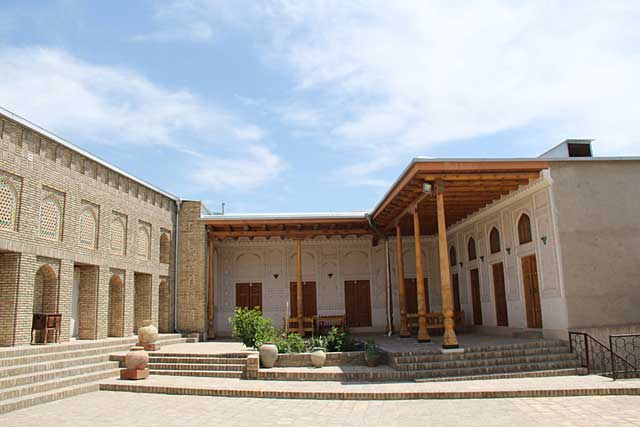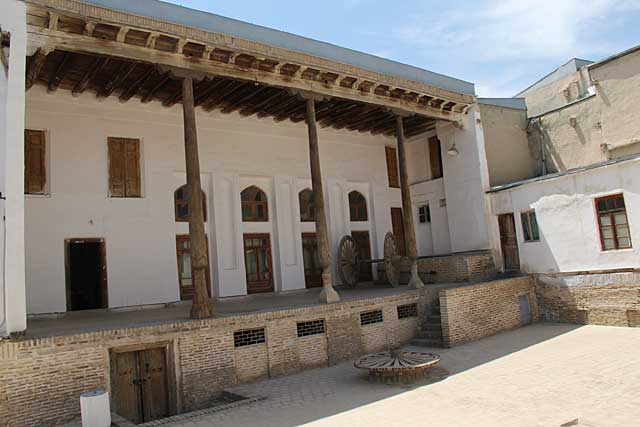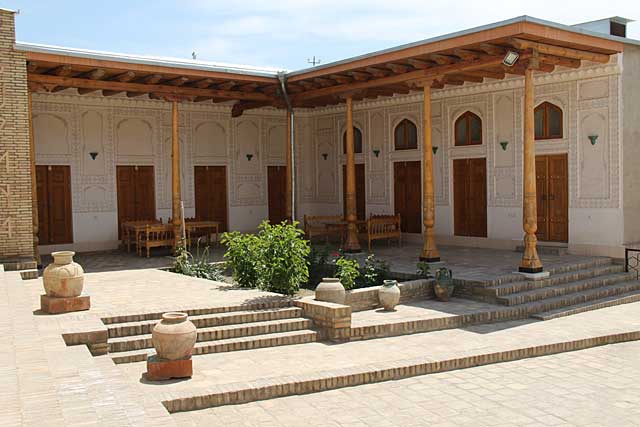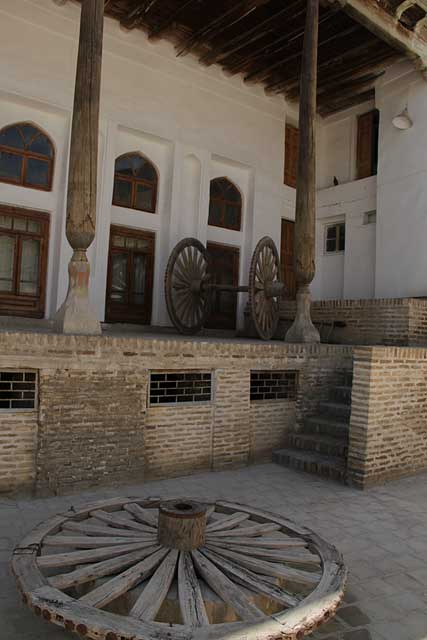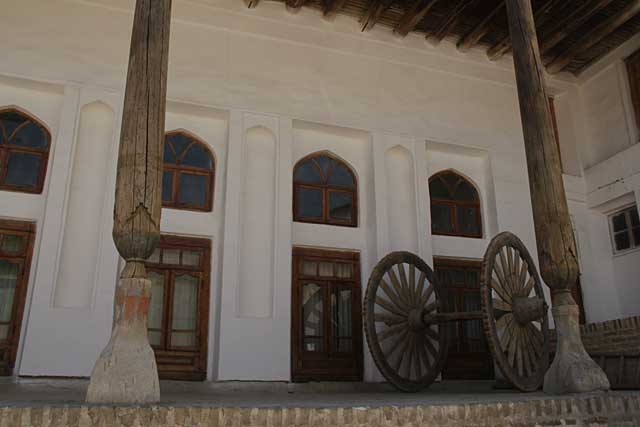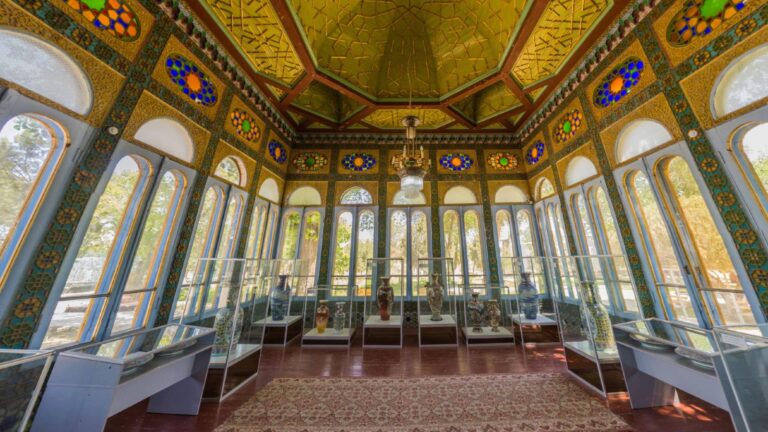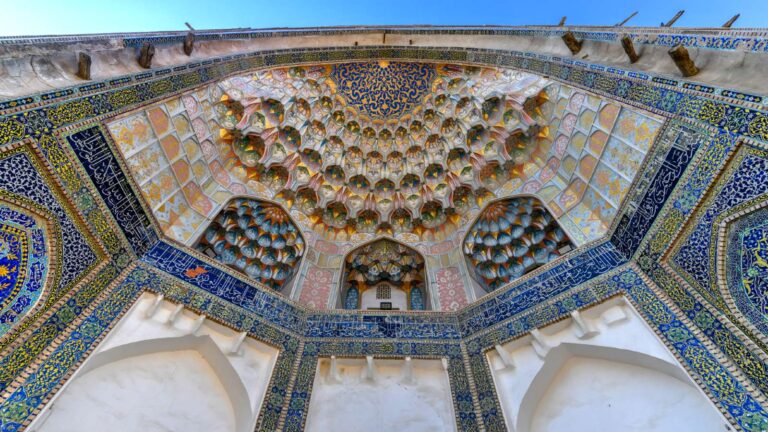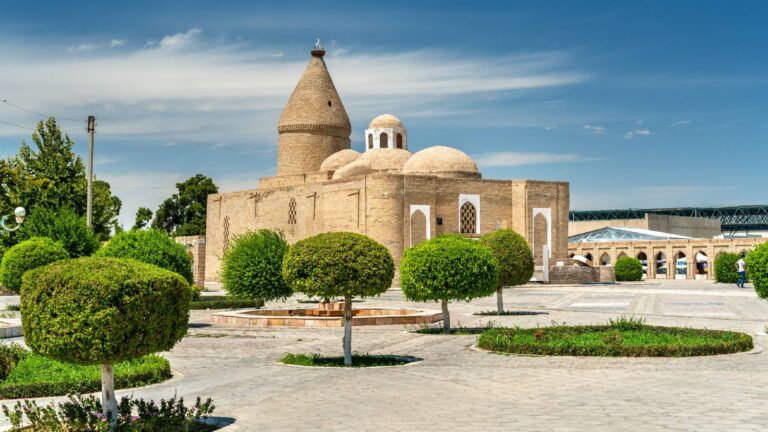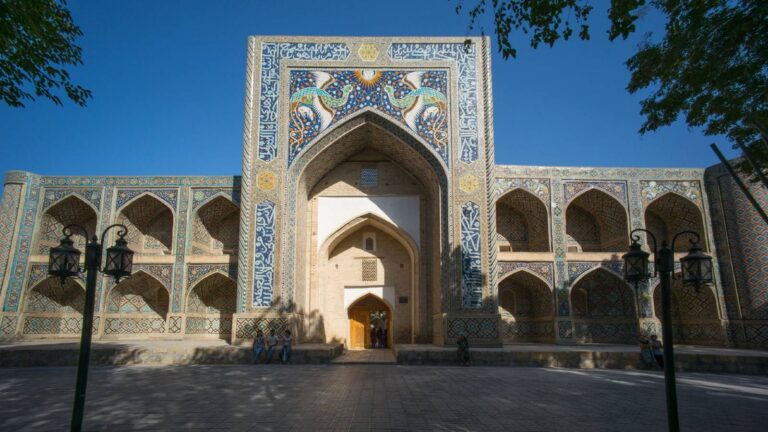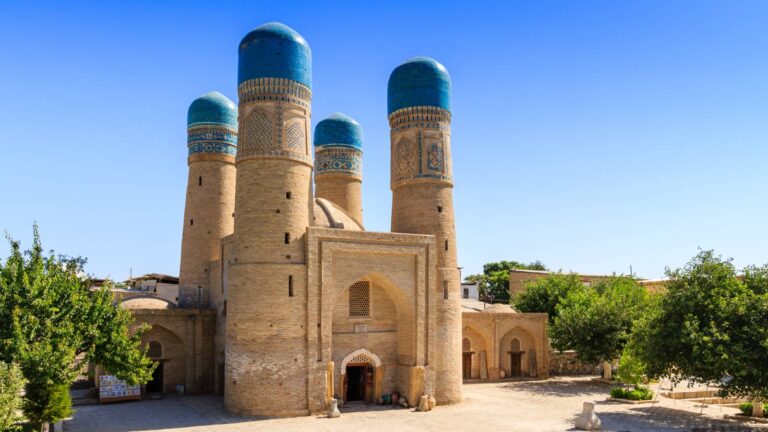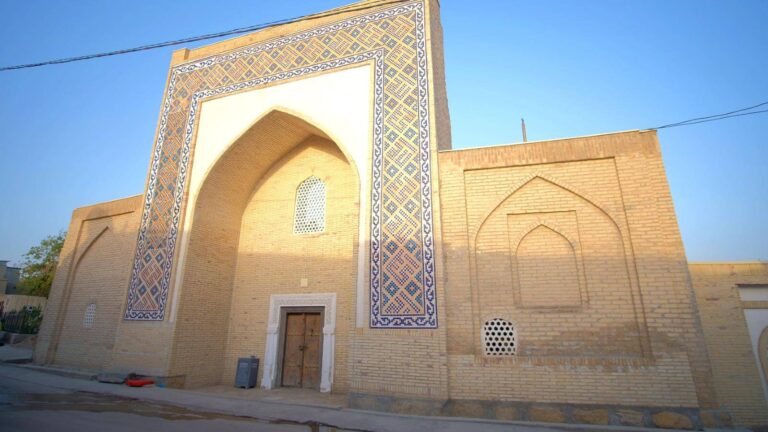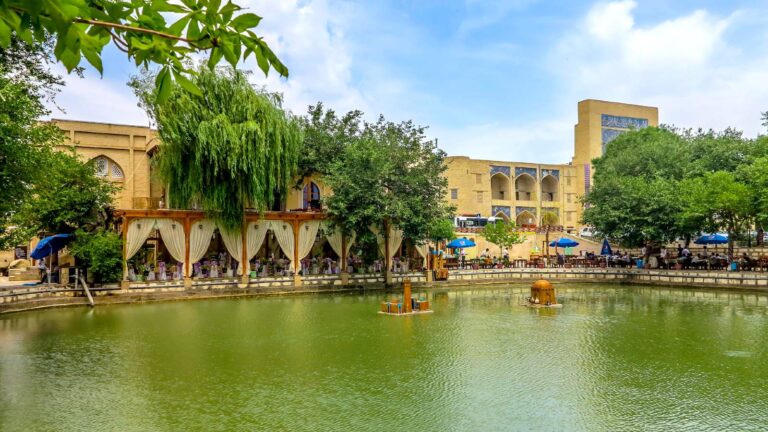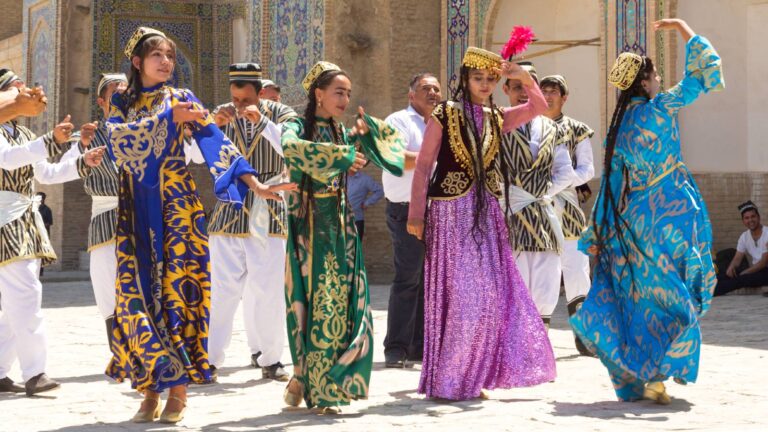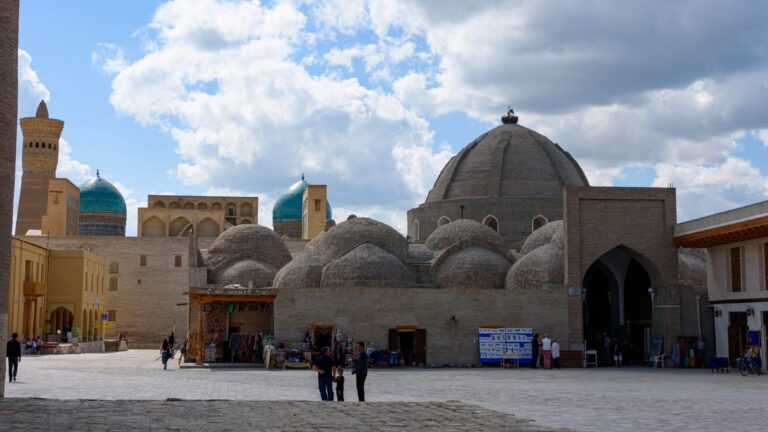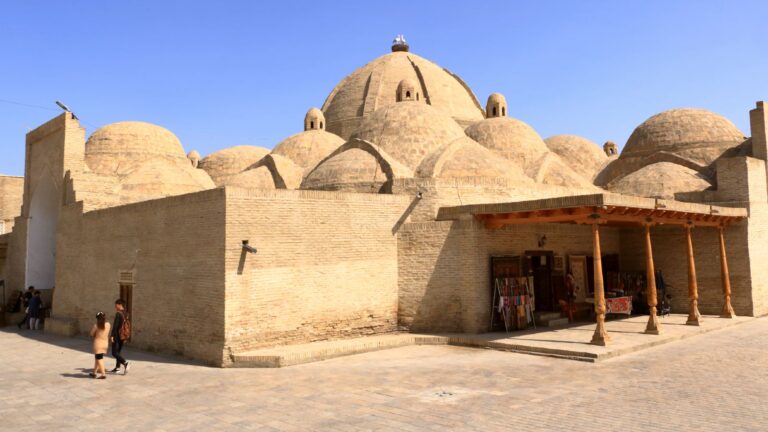Getting There
By car you may get there in 20 min from Airport
From railway station in 45 min by car.
What to Expect
In Uzbekistan people revere Fayzulla Khodjaev’s memory, and that is why Fayzulla Khodjaev Memorial Museum was established. This historical building has the excellent condition, and is the outstanding place of interest itself. House-Museum of Fayzulla Khodjaev has two yards: the outside yard – “men’s” and inside one – “woman’s”. All walls of the building and interiors of the dwelling are richly decorated with paintings on wood and alabaster, cutting on ganch and plaster. The aggregate house space is three hectares.
It is interesting, under the House-Museum of Fayzulla Khodjaev there is a system of underground tunnels, which purpose is still unknown. May be they were constructed by Fayzulla Khodjaev, in case of danger it was possible to hide from Khan’s anger. But, perhaps, the tunnels have more ancient history, and they had been here before the house building.
History
Fayzulla Khodjaev, is, undoubtedly, a key politician figure of Uzbek history of 1920-1930. His fantastic career and tragic final left many ambiguities, covered with discrepant myths of the XX century.
Fayzulla Khodjaev, a native of Bukhara, belonged to the richest people of Bukhara khanate. At the end of the XIX – beginning of the XX centuries there was a state of classical Asian monarchy headed by the amirs of Mangyt clan under the protectorate of the Russian Empire.
Facilities Available
Today in Fayzulla Khodjaev Museum along with the memorial exposition there are two thematic exhibitions. The first one shows the mode of rich Uzbek merchants and includes the original subjects of luxury, furniture and musical instruments, silk and velvety oriental robes.
The second exhibition demonstrates the wide collection of dishes, where the items of Kuznetcov and Gardner factories, copper and silver dishes of Bukhara masters are presented.

